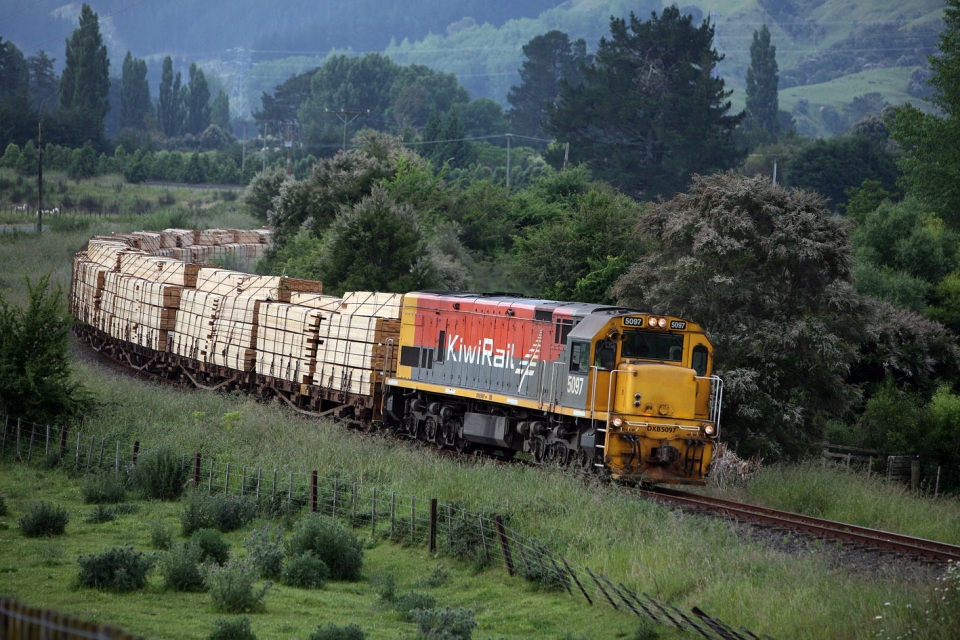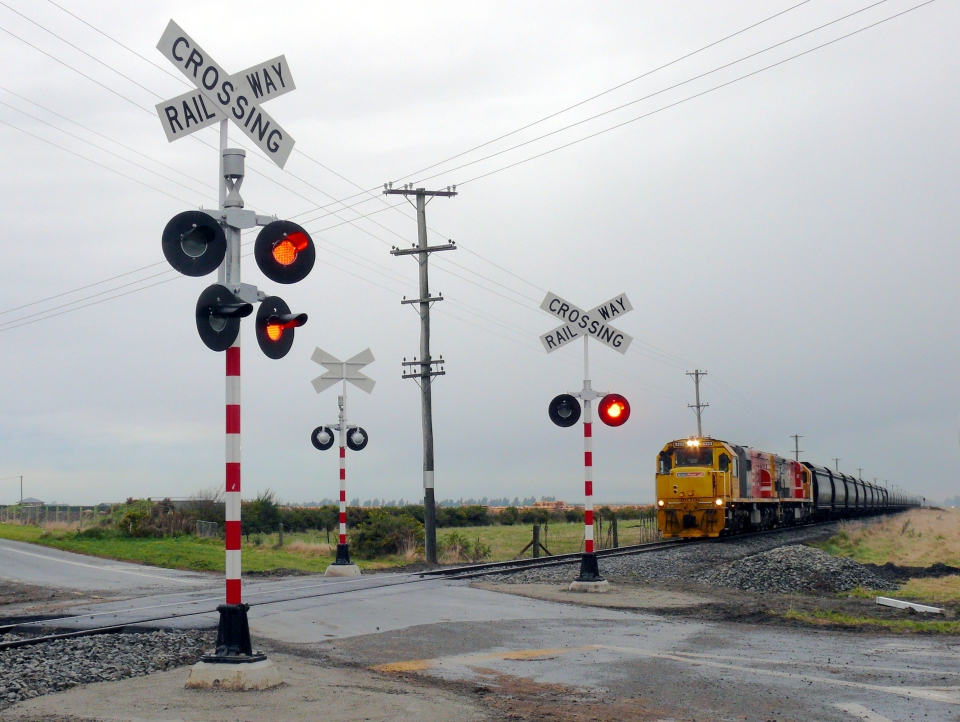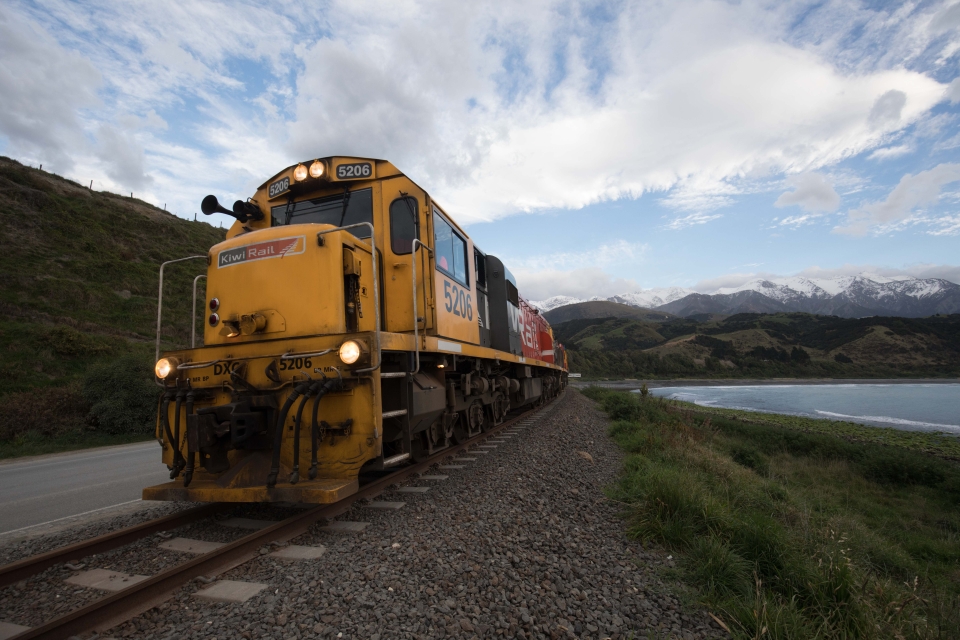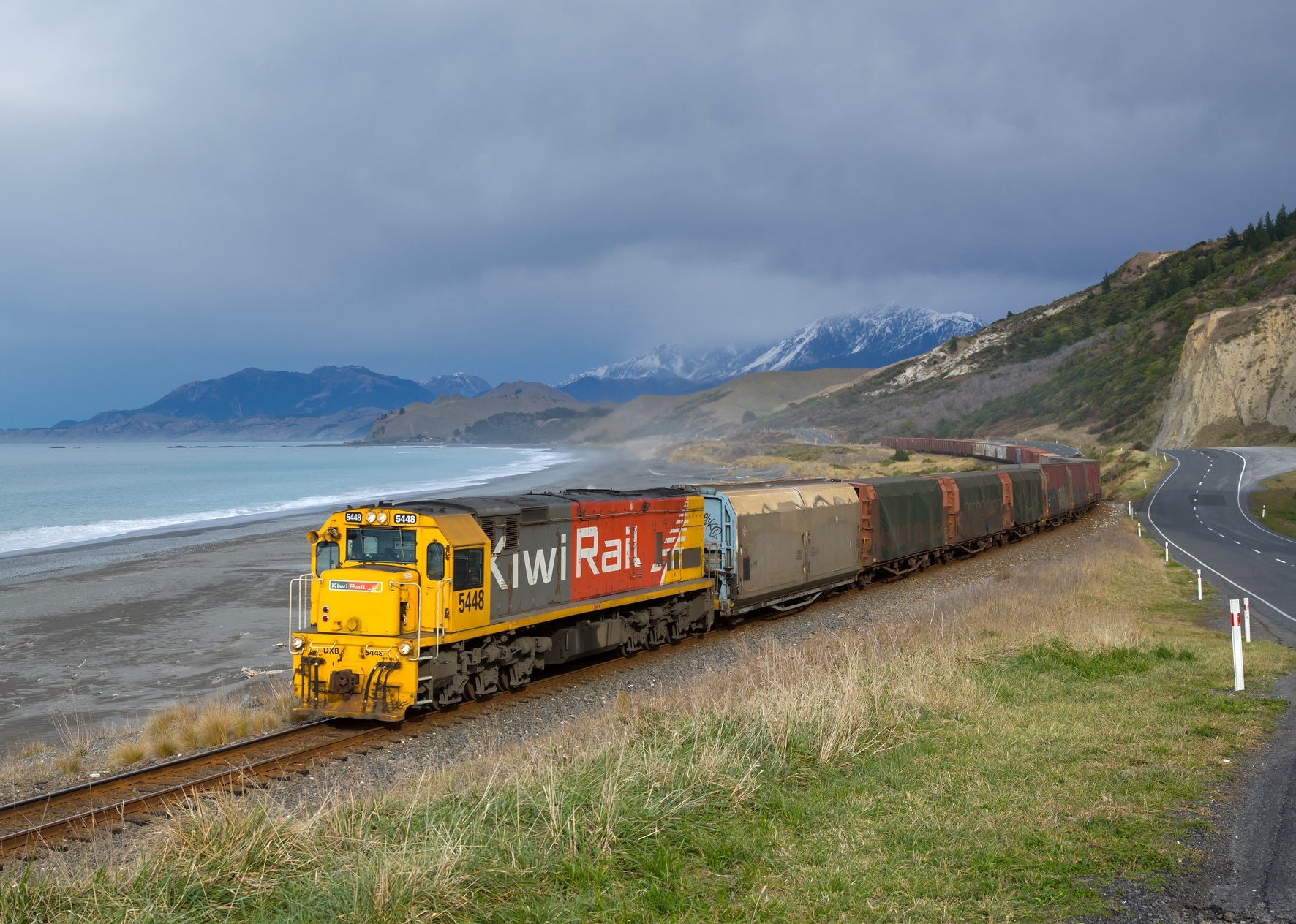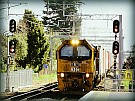New Zealand's rail network links 50 towns and cities in the North and South Islands and is connected by the inter-island ferries. The main use of the rail network is to move freight. Rail moves 18 million tonnes of freight each year.
Rail transport played an important role in developing New Zealand’s economy. It also opened up access to inland areas. Rail moves goods between places and to major seaports where they are exported. As road trucks have got bigger and can carry more than in the past, they have replaced the need for some freight trains. Freight trains are still able to carry more than trucks, so trains transport:
- coal
- milk
- dairy products
- wood and timber products
- iron
- steel
- meat.
Rail moves about 16% of New Zealand's total freight.
Why isn’t more of our freight transported by rail?
Until the 1980s, the government had rules that meant that freight could only be carried by rail. Since this time trucks have become more popular. Trucks can take freight directly from one place to another and take less time than trains.
Sometimes freight from trains needs to be moved on to trucks to get it to where it needs to go.
New Zealand’s rail often has low speed limits because of the terrain. This makes trains slower than road vehicles.
Trains need to be loaded carefully so the weight is balanced and wagons do not derail on steep corners.
The future
New loading and braking technology will help trains to carry more wagons with more weight in the future.
Staying Connected
Natural events such as earthquakes, floods and landslides can damage railway lines and roads. The 2016 Kaikōura earthquake damaged State Highway 1 and the rail link between Christchurch and Picton. There were 60 sites along this line needing major repairs. Some tunnels and bridges were damaged. Local communities struggled to keep going while cut off from the rest of the country. The rail link and highway were rebuilt. This event showed how important rail and road connections are.
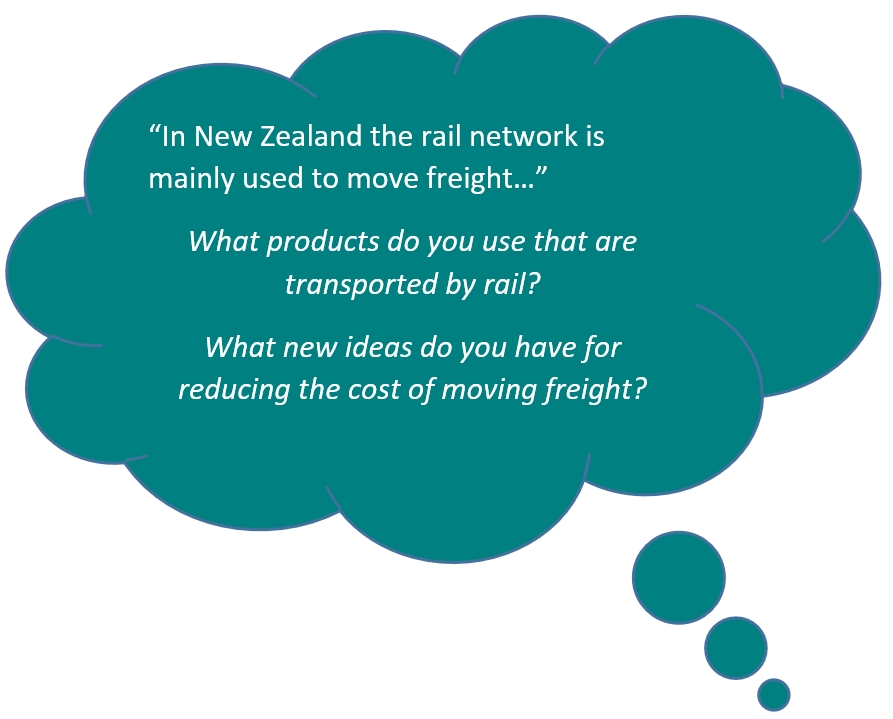 Napier to Wairoa
Napier to Wairoa
Storms closed the rail link between Napier and Gisborne in 2012. The line was repaired and reopened between Napier and Wairoa in 2019. This line will be used to transport logs from forest blocks. Moving logs by train could take up to 5,714 trucks a year off the road. It will also reduce carbon emissions by nearly 1300 tonnes.
Ready for a quiz? Try the 'Moving Freight' activity.

